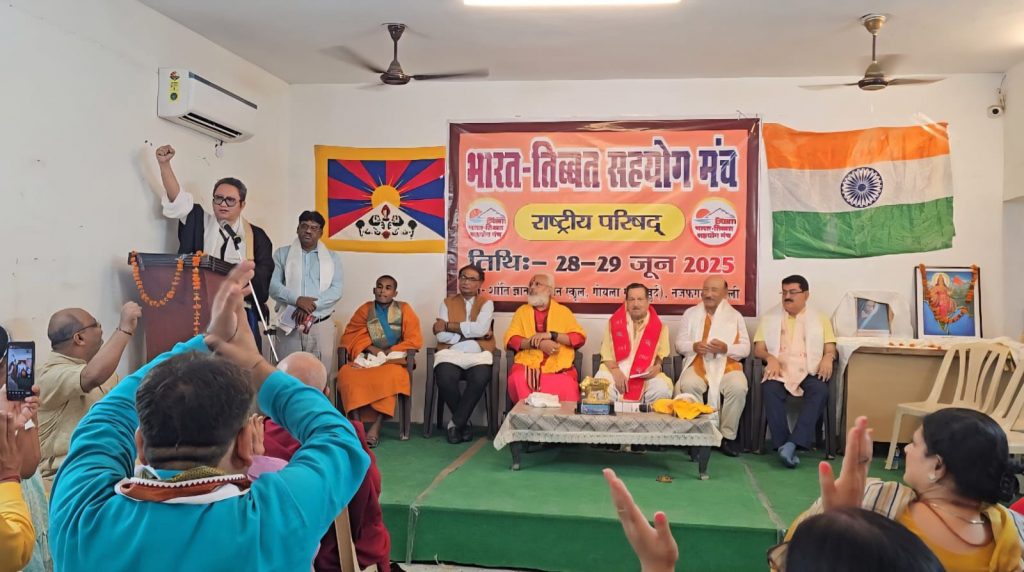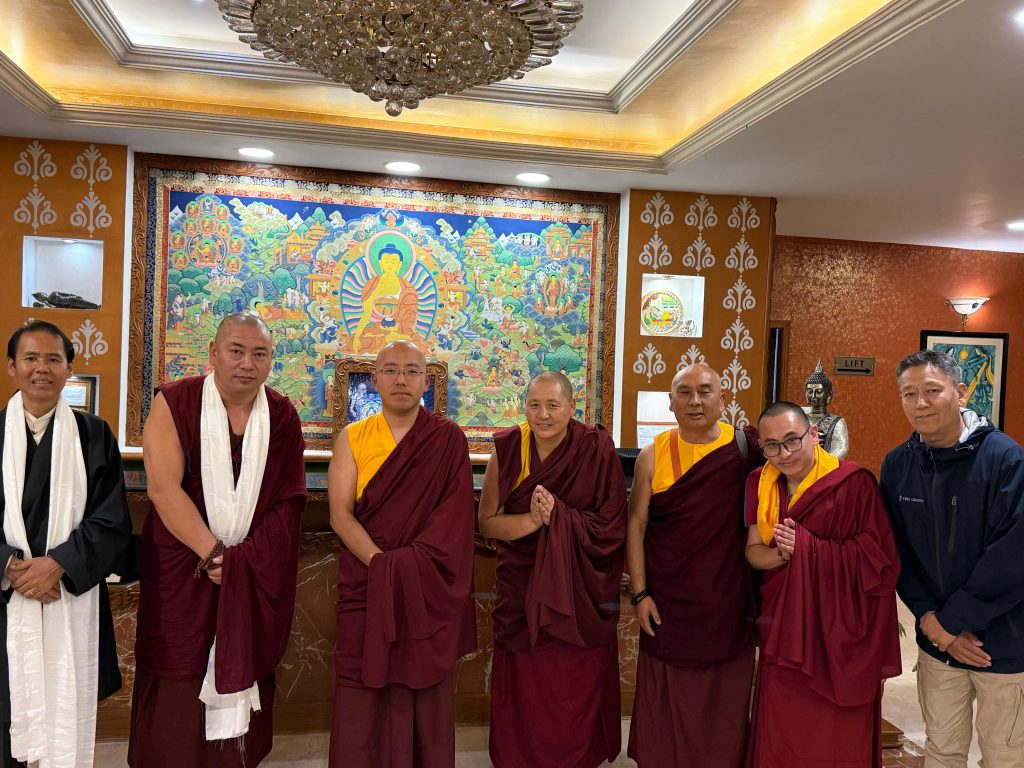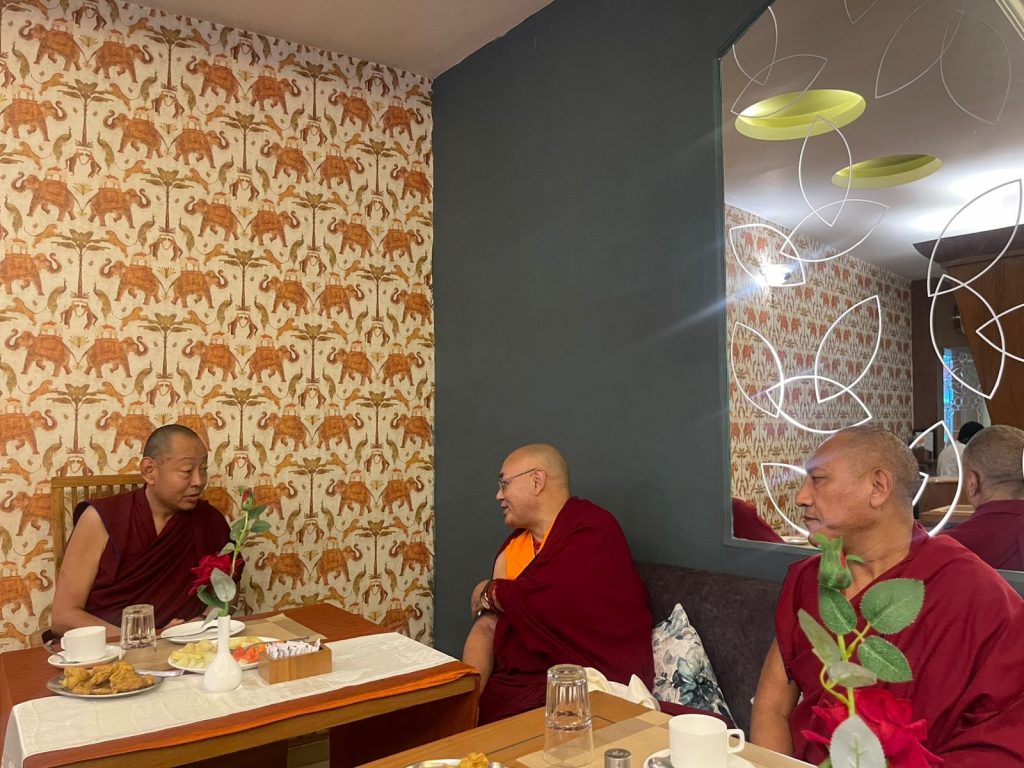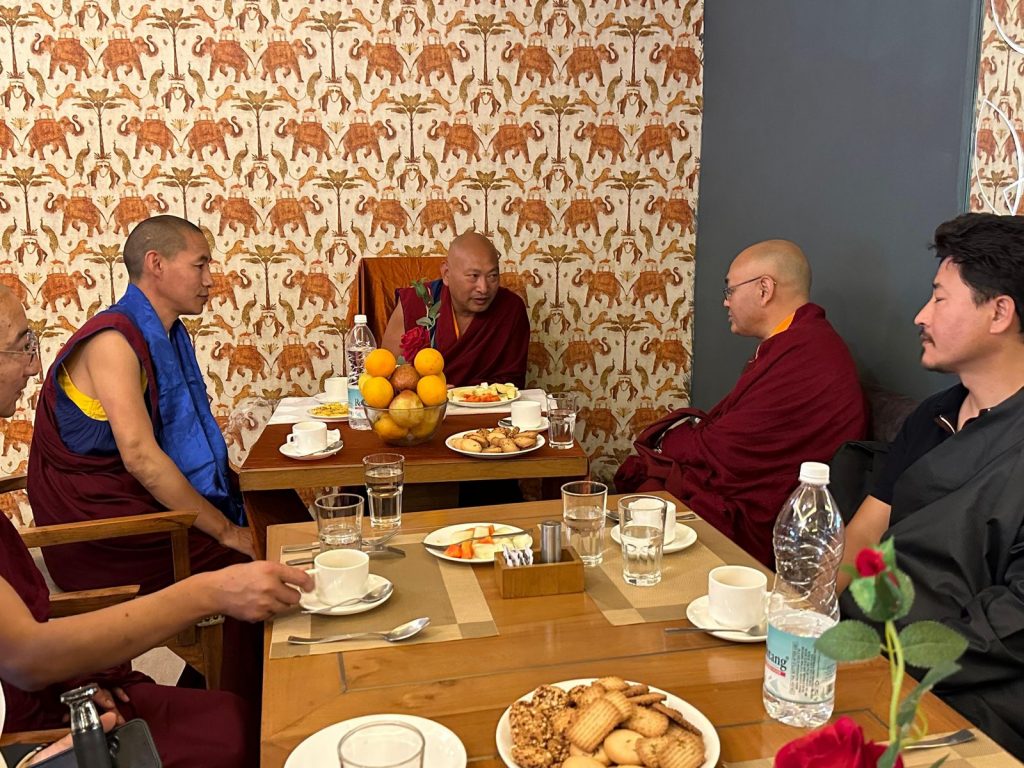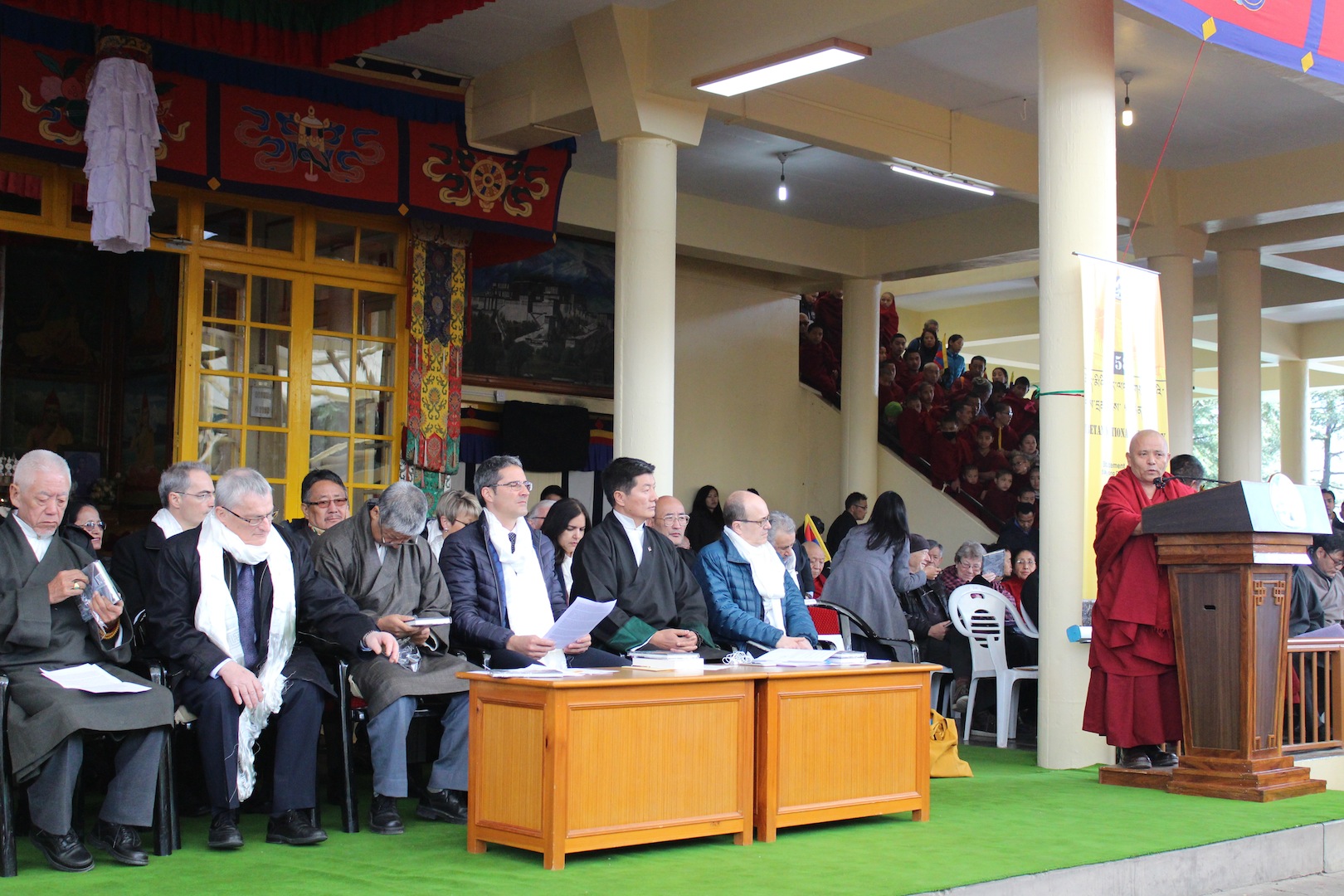
Today is a day of great importance in the history of the Tibetan people. It was in 1959 on this day that the communist government of China revealed the stark devious face of its policy to take over Tibet by use of armed occupation rule. The violent repression it unleashed on the Tibetan people was beyond all imaginations. Not only that, the occupying Chinese army also plotted a plan which posed an imminent threat to the life of His Holiness the Dalai Lama. This had the spontaneous effect of galvanizing the people from all the three Provinces of Tibet to come together to stage a great national uprising in capital Lhasa. The Central Tibetan Administration also observes this day as the Tibetan Martyrs’ Day in memory of the heroic men and women of patriotism. Therefore, on this day we, first of all, commemorate with gratitude the spirit and deeds of the heroic Tibetan men and women whose sense of patriotism prompted them to sacrifice their all, including their precious lives, for the sake of Tibet’s religious heritage, nationhood and people. Also on this day we express our solidarity with those in Tibet who even today continue to suffer torture and oppression of various kinds under the brutal policies of the communist Chinese government. Besides, we offer our solemn prayers to the ocean of Victorious Beings of Three Precious Jewels, beseeching that the Tibetan people living in Tibet be freed from their current tragic hardship and suffering and be brought to a situation where they will be able to enjoy their freedom and human rights in common with people living in other countries across the world.
It is a fact and a self-evident too, that ‘Tibet’ and ‘China’ are in terms of their histories, geographies, ethnicities, languages, customs and traditions, and so on, are totally different. Nevertheless, by using brute force the communist Chinese invaded and brazenly took over the territory and all its resources. Not only that, the communist Chinese invaders also killed, and subjected them to torture and oppress hundreds of thousands of Tibetan people without any sense of limit or restraint. They also set out to annihilate Tibet’s religion and culture as well as to destroy its natural environment. These oppressions severely tested the Tibetan people’s capability for endurance and ultimately compelled them to hold peaceful protest campaigns which have continued one after another to this day. The generation of the Tibetan people growing up today under the Chinese occupation rule too continue to hold protest campaigns on successive, continuous occasions to express their rejection of the implementation of the brutal policies on them.
In the year 2008, large-scale peaceful protest campaigns were launched one after another in all the three traditional provinces of Tibet, beginning from Tibet’s capital Lhasa. China responded by unleashing on the Tibetan people its paramilitary People’s Armed Police Force as well as it regular People’s Liberation Army troops who used their weapons to carry out brutal repression, showing not a bit of kindness towards anyone. As a result, many Tibetan men and women, including monks and nuns, lost their lives. In particular, under China’s colonial policy rule in Tibet, the Tibetan people, far from enjoying any political right, never had any of the basic human rights. The invariable use of policies like these in a continuing stream of brutal repression, which were in stark opposition to their aspirations, convinced the Tibetan people to the very depth of their being of the utter futility of entertaining any hope for a viable future under the Chinese rule. It drove the Tibetan people to a more desperate course of peaceful protest actions. And so, since the year 2009, until the 8th of December 2016, there have been a total of 145 verified cases of patriotic Tibetan men and women of courage who set themselves on fire in protest against the Chinese rule. Their two main slogans as they carried out those fiery protests were: “Let His Holiness the Dalai Lama be invited to Tibet!” “Let the Tibetan people enjoy freedom and the basic human rights” Of them, 125 Tibetans are known to have died, while the aftermath of the situation after such protests was such that there is still no information whether 20 other had survived or died.
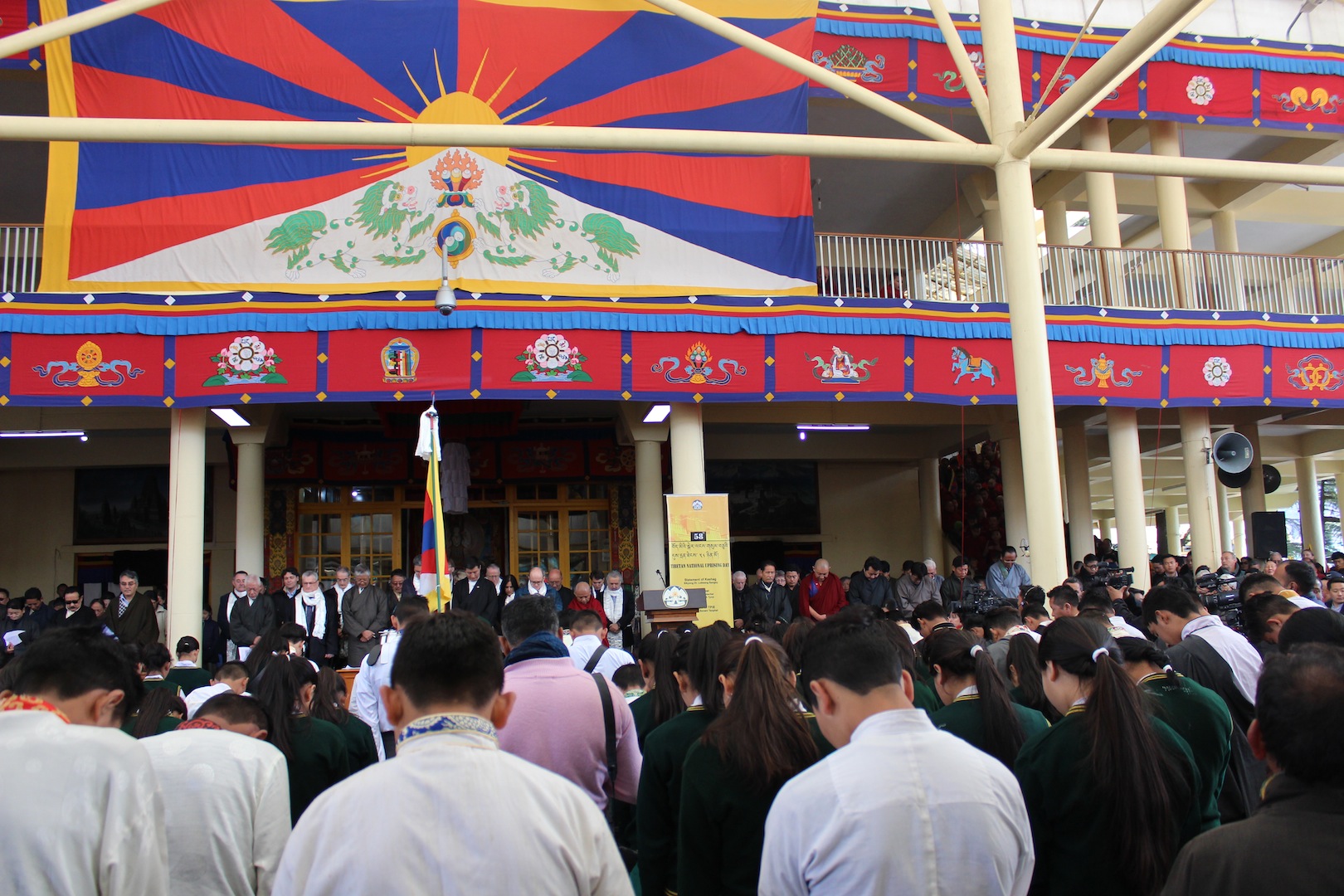
Even today, Tibetans, the rightful owners of the territory of Tibet, continue to remain deprived of their political rights, as well as their freedoms of religious belief, language, culture, natural environment protection, and so on. Because of it, Tibetans continue to take recourse to peaceful protest campaigns to raise their demand that these rights be respected. But these innocent Tibetans are being arrested with false accusations of having committed criminal offences and taken away by force. Such Tibetans are subjected to all manners of brutal persecution and torture, including with executions, prison sentences, and so on. This remains an endless, continuing trend. In this connection one may recall the recent, ongoing case of the Tibetan businessman Tashi Wangchuk. In keeping with the provisions of the Constitution of the People’s Republic of China, which emphasizes the need to guarantee the protection of the language of the ethnic minorities, he pleaded for respect for and education in Tibetan language for the Tibetan people in parity with the status accorded to the mandarin Chinese language. But the Chinese government responded with a false criminal offence charge against him and on that basis put him in jail. This makes it abundantly clear how China brutally deals with innocent Tibetans if they seek to even so much as to raise their demand for respect for their rights.
Because of China’s policy of resolute adherence to the use of absolutely nothing but savage force, Tibetan political detainees often die unnatural deaths. And even if some of them remain alive to be eventually released from prison, they die shortly afterwards due to serious and chronic ailments they suffer from as a result of years of ill-treatment in prison. In the book titled “Escape from the Jaws of Death Once Again” which has found its way to the outside world, political prisoner Labrang Jigme Gyatso writes: “If there should occur any dilution in my determination and resolve, in my sense of ethnic fraternity and loyalty, in my hopes and vigour, and so on, the wishes of the Chinese government will have been completely fulfilled. Hence, whatever tools and strategies they employ in their attempts to vanquish us through intimidation and enticements, lies and deceptions, and so on of various kinds, there shall be no wavering in the oath I have taken.” He, thereby, exposed the stratagems of lie, enticement and deception used by the government of China.
Since the recent past, a policy of severe destruction and restrictions on the freedom of religious practice of the Tibetan people has been enforced. When His Holiness the Dalai Lama, a champion of peace across the world, conferred his 34th Kalachakra teaching at Buddhism’s holiest site of Bodh Gaya in India in January 2017, the government of China refused to issue passport to a large number of Tibetans who wished to receive the empowerment. A few Tibetans who had already been issued their passports were given dire warnings that their land and housing entitlements would be confiscated, that their family members and those who had stood surety for the issuance of their passports would be punished if they failed to return home before the commencement of the kalachakra teachings. The obstruction and distress it brought on the Tibetan believers was limitless.
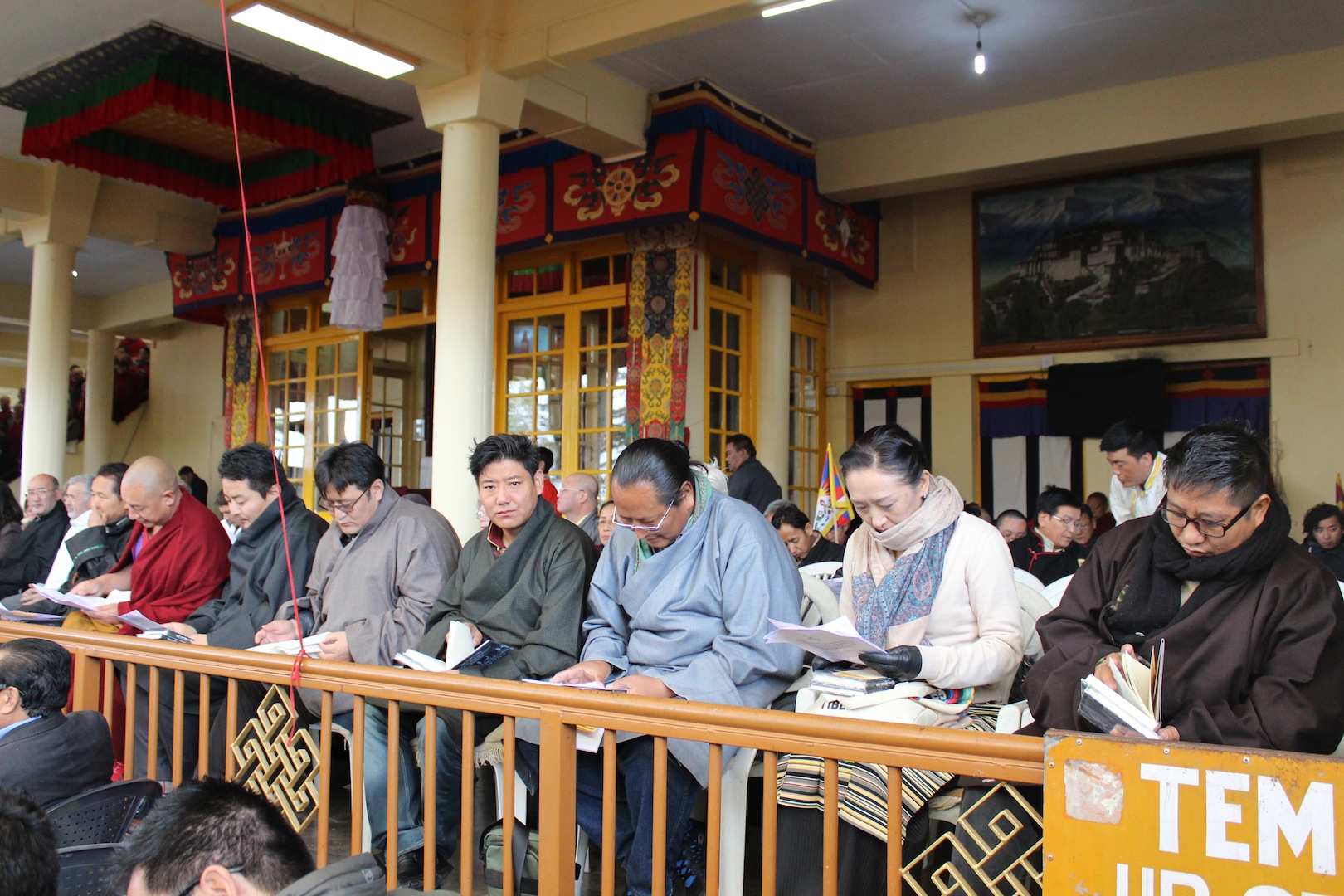
There has been no change whatsoever in the existing hardline policy of the government of China in the way they respond to the activities of His Holiness the Dalai Lama and in their attacks on the Central Tibetan Administration. In fact, over the past several years, the policy has kept getting ever more severe. It has been the ardent wish of His Holiness the Dalai Lama and resolute stand of the Central Tibetan Administration that the issue of Tibet should be resolved by the middle way approach. Although the efforts to revive the Sino-Tibetan dialogue with this end in view have been transparent and universally known, there has so far been no responsible requisite response of any kind from the Chinese side.
The activities of His Holiness the Dalai Lama has been keeping on flourishing by leaps and bounds. The courage and fortitude of the Tibetan people living in Tibet remains resolute and unwavering. Thanks to these and the efforts of the Central Tibetan Administration and the Tibetan public in exile, the number of people in the outside world who support the Tibetan people’s struggle for their just cause keeps multiplying year after year. During the immediate past year, His Holiness the Dalai Lama met with the President of the European Parliament Mr Martin Schulz, as well as with the Minister of Culture of the Czech Republic, and the President of Slovakia Mr Andrej Kiska. Likewise, in New Delhi, the capital of India, His Holiness the Dalai Lama not only met with the President, Mr Pranab Mukherjee but also attended with him a summit of Laureates and Leaders for the benefit of the children of the world in his presidential palace of Rashtrapati Bhawan.
In February 2017, Secretary of State Mr. Rex Tillerson made it clear that the new administration of the United States of America will not only continue the policy of supporting the Tibetan cause but will also make efforts to bring about a dialogue between the government of China and His Holiness the Dalai Lama. He also made clear his commitment to receive His Holiness the Dalai Lama. The positive and encouraging trend in developments like these show that there is a widespread acknowledgement across the world of His Holiness the Dalai Lama’s endeavours and strong support for and attention to the issue of Tibet.
Likewise, speeches have been delivered, press statements issued and resolutions adopted in or by the European Parliament at Strasbourg as well as Brussels, in the Parliament of France, in the United States Congress, in the British Parliament at Westminster, in the Parliament of Italy, by the Vice-President of the German Parliament, by members of the Australian Parliament, and by Members of Parliament in the host country India, expressing support for the Tibetan struggle. Moreover, in the Parliament of Taiwan, a cross-party Tibet Caucus was newly set up. In Japan too, an All Party Japanese Parliamentary Group for Tibet was newly launched. These show that support for the Tibetan people and their cause continue to rise and keep getting stronger than ever before.
In its past, the General Assembly of the United Nations had adopted three resolutions on the issue of Tibet at different times. The first was in October 1959, the second in December 1961 and the third was in December 1965. We appeal to the New Secretary General of the United Nations, Mr. Antonio Guterres, to extend his support for the issue of Tibet, make efforts to revive the Sino-Tibetan dialogue, work towards ensuring a sustained protection of the religious, cultural and linguistic heritage of Tibet during his tenure. We appeal to him to work towards creating conditions and ensuring support on these issues through concrete measures and their actual implementations.
Furthermore, Prince Zeid Ra’ad Al Hussein, United Nations High Commissioner for Human Rights in Geneva, Swizterland has expressed concern on the human rights situation in Tibet and clearly revealed how extremely poor it is.
In January 2017, the non-governmental human rights organization-Freedom House, which is based in Washington, DC, U.S.A. published its annual report on the state of civil and political rights in the world during the year 2016. The report found that in its list of 18 countries with worst records on human rights, China’s position came 15th. The report also found that when it came to the question of respecting civil and political rights of citizens and territorial subjects, China’s position was the worst.
So long as the government of China does not change its hardline policies on the Sino-Tibetan political issue, the contradictions between the government of China and the people of Tibet will only worsen and the international community’s perception of the government of China will also become considerably more negative. Naturally it will become impossible for the government of China to be ever viewed with respect by others. It is up to China alone to decide whether the Sino-Tibetan dispute should be settled. Hence, we take this opportunity to remind the current President Mr Xi Jinping of China, the need to open talks on the basis of the middle way approach proposed by His Holiness the Dalai Lama and give consideration to making efforts to implement in Tibet, a policy of meaningful autonomy in governance.
In our homeland Tibet, the Tibetan people have no freedom to enjoy any of their political rights. Not only that, they are also deprived of any freedom to preserve their religious belief, their unique ethnic culture, language and so on. The situation is extremely critical and nothing like it has ever occurred in the history of the land. It cries out for those of us who are living in exile – the young, the adult and the elderly alike – to rededicate our commitment with a renewed sense of determination in our efforts to accomplish our fundamental objective. While this should be the general outlook of our movement, in specific terms, the Central Tibetan Administration and the general Tibetan public should all pool their capabilities in their respective spheres of strength towards all aspects of the efforts to preserve and perpetuate our unique religious, cultural and linguistic heritage. We are emphatic in reiterating this appeal for strengthening our resolve and action on this occasion.
On the 14th of January, 2017, on the successful conclusion of the 34th Kalachakra empowerment teachings at the most sacred Buddhist site of Bodh Gaya, His Holiness the Dalai Lama was offered a Long-Life Prayer by way of the White Tara Wish-Fulfilling Wheel. And during the ceremony His Holiness affirmed his commitment to aim to live for more than one hundred years. On behalf of all Tibetans in Tibet and in exile, we take this opportunity to express our unfathomable heartfelt gratitude to His Holiness for this generosity of caring for the Tibetan people. It is naturally an unshakable responsibility of great importance for all Tibetans to stand united in dutifully carrying out the wishes of His Holiness the Dalai Lama as to gladden His heart. Hence, everyone should be unequivocal both in words and deeds in remaining true to their respective duties so that the struggle of the Tibetan people and the public reputation of it and do not suffer any sort of let down in any way. This is an effort we all should make sure to uphold at all times.
At this time, when more than 60 years have passed since the Tibetan people first arrived in exile, we take the opportunity to express our thanks with a feeling of great gratitude to the government and people of India, which has been like a second home to us, for having extended fraternal hospitality and all possible help to us and, likewise, to the governmental and non-governmental bodies as well as private individuals in the wider outside world who have extended financial and other kinds of help to us in the areas of the Tibetan people’s struggle for their just cause, and in the provision of education, health and other facilities to the Tibetan people living in exile.
To conclude it all, we offer prayers of hope that His Holiness the Dalai Lama, a genuine patron and helping hand for all sentient beings on this earth in general and especially for all the Tibetan people living in Tibet and in exile, lives for ten thousand years; that all his wishes are fulfilled with spontaneity; and that the just cause of the Tibetan people definitely prevail in all speediness.
Tibetan Parliament in Exile
10 March, 2017
*****
NOTE: In case of any discrepancy between this English translation and its Tibetan original, the latter should be treated as final and authoritative.
